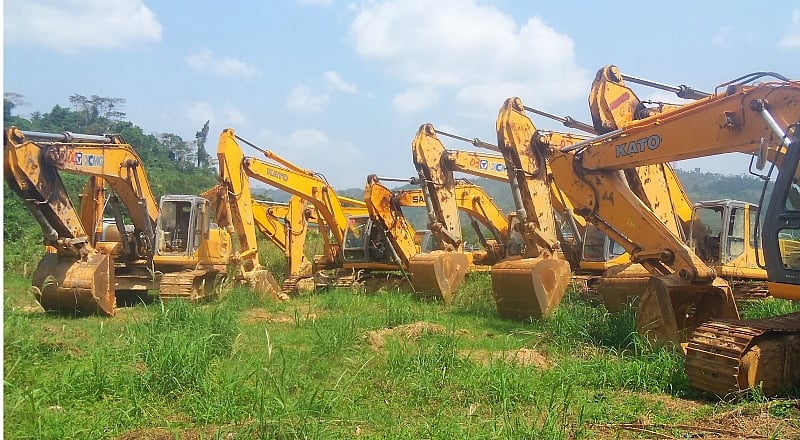Ghana’s newly implemented ban on excavator imports represents a significant escalation in the government’s fight against illegal mining, a practice that has caused widespread environmental degradation, particularly to the nation’s vital water resources. The Ministry of Transport’s directive establishes a “No Permit, No Excavator” policy, requiring all importers to obtain explicit authorization before bringing these machines into the country. This measure aims to control the flow of excavators, which are frequently employed in illicit mining operations, contributing to deforestation, water pollution, and habitat destruction. The ban underscores the government’s commitment to protecting Ghana’s natural heritage and ensuring the sustainability of its water bodies for future generations. While the move is lauded as a crucial step towards environmental preservation, it also raises questions about its potential impact on legitimate businesses that rely on excavators for lawful operations.
The comprehensive nature of the ban extends to all shipping lines operating in Ghana, effectively creating a blockade against the unauthorized entry of excavators. These companies are now legally obligated to verify the existence of a valid permit issued by the Ministry of Transport before transporting any excavator into the country. This added layer of oversight aims to prevent circumvention of the ban and strengthen the government’s control over the importation process. The directive also places the onus of compliance on dealers and importers, making them directly responsible for securing the necessary permits before initiating any shipment. This shared responsibility between the government, shipping lines, and importers is designed to create a robust regulatory framework that minimizes the risk of excavators falling into the wrong hands and being used for illegal mining activities.
The urgency of the ban reflects the escalating environmental crisis caused by galamsey, the local term for illegal mining. The uncontrolled use of excavators in these unauthorized operations has led to widespread deforestation, as vast tracts of forest are cleared to access mineral deposits. The resulting soil erosion contributes to the siltation of rivers and streams, degrading water quality and impacting aquatic life. Furthermore, the use of mercury and other toxic chemicals in illegal mining poses a severe threat to human health and the environment, contaminating water sources and agricultural lands. The ban on excavator imports is a direct response to these pressing concerns, aiming to curb the destructive practices associated with galamsey and safeguard Ghana’s natural resources.
While the ban is primarily focused on combating illegal mining, its impact extends beyond this specific sector. Legitimate construction and mining companies that rely on excavators for their operations are now faced with new regulatory hurdles. The requirement to obtain prior approval for importing excavators may introduce delays and bureaucratic complexities, potentially affecting project timelines and increasing operational costs. The government’s commitment to enforcing the ban strictly, while commendable in its intent, could inadvertently create challenges for businesses operating within the legal framework. Balancing the need to protect the environment with the interests of legitimate businesses will require careful consideration and potentially, adjustments to the implementation process to minimize unintended consequences.
The ban on excavator imports is not an isolated measure but rather part of a broader national strategy to combat illegal mining. It complements ongoing initiatives such as Operation Halt II, a military-led operation tasked with eradicating illegal mining activities across the country. This operation involves the deployment of security forces to mining sites, the seizure of illegal mining equipment, and the arrest of individuals engaged in unauthorized operations. The ban on excavator imports reinforces the efforts of Operation Halt II by restricting the supply of these machines, making it more difficult for illegal miners to acquire the necessary equipment to carry out their destructive activities.
The effectiveness of the ban will depend on several factors, including the government’s ability to enforce it rigorously, the cooperation of stakeholders, and the development of sustainable alternatives for legitimate businesses. The Ministry of Transport has provided contact information for inquiries and clarifications, emphasizing its commitment to transparency and stakeholder engagement. Public awareness campaigns are also crucial to ensure that all relevant parties understand the implications of the ban and their respective responsibilities. The government’s proactive approach to addressing the challenges of illegal mining through a combination of regulatory measures and enforcement actions demonstrates its resolve to protect Ghana’s environment and secure a sustainable future for its citizens. The long-term success of this initiative will depend on continuous monitoring, evaluation, and adaptation to evolving circumstances.


